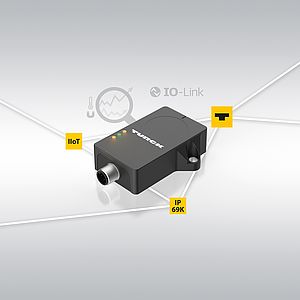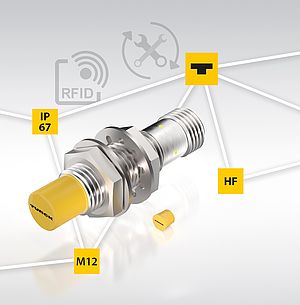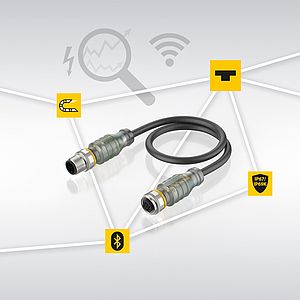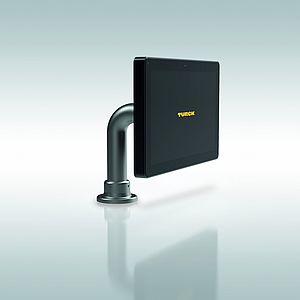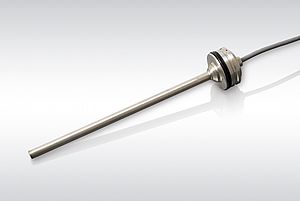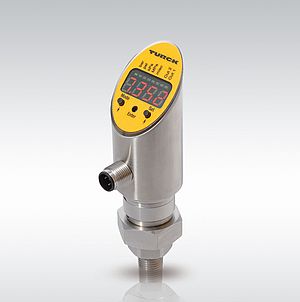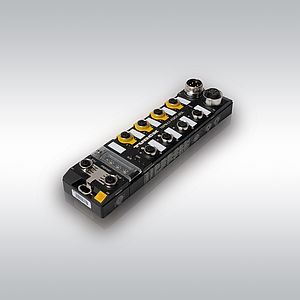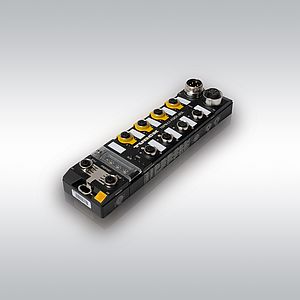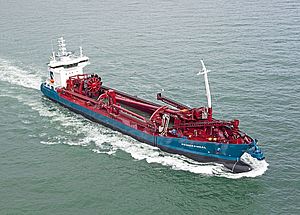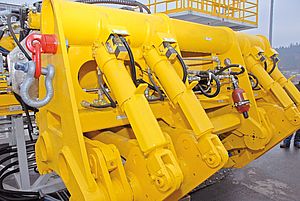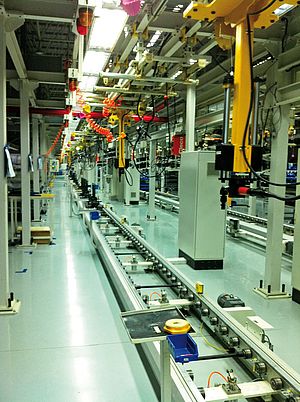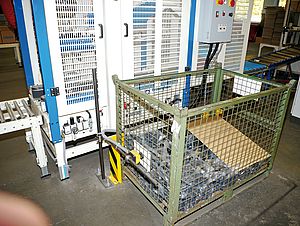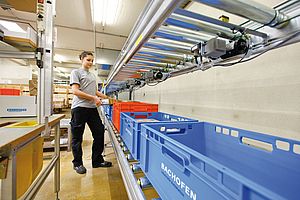Turck has added a variant with a CANopen interface to its QR24 encoder series. The new wear-free QR24-CAN variant is ideally equipped for use in mobile machines. Short latency times as well as a cyclical and event-driven communication are only two of the many benefits of the CANopen protocol, which is frequently used in this application field. These applications include crane and lifting technology, transport systems, construction machinery and also special machine building. The first pilot customers are already using the new contactless encoder with the CANopen interface in the construction machinery and wind power sector.
As with other QR24 models, the sensor and the positioning element of the encoder are fully potted and designed as two independent and fully sealed units that withstand vibration or shocks on the shaft. Wear-intensive ball bearings or seals, that lead to machine downtimes or long maintenance times are not required. The QR24 series has the edge over both optical and magnetic encoders.
Thanks to its intelligent mounting concept using adapter rings, the permanently sealed IP69K encoders can be fitted on all standard shafts with diameters up to 20 millimeters. As well as the new stainless steel variants, Turck also offers the encoder as a multiturn or singleturn version with an SSI interface, incremental output and analog voltage/current output.
Programmable Ethernet Gateways in IP20 and IP67
Furthermore, Turck will be showcasing a new generation of programmable gateways for its BL20 and BL67 modular I/O solutions. The new gateways can be programmed with Codesys 3. Turck's multiprotocol technology enables the devices to be used in any of the three Ethernet protocols - Profinet, Ethernet/IP and Modbus TCP. The new devices now provide a programmable gateway for Profinet applications for the first time.
The company has been offering programmable gateways in IP20 and IP67 for different fieldbuses for several years. The devices operate with Codesys 2.3 and have been tried and tested in several applications in which decentralized intelligence in the field can be used effectively. Programmable gateways are not only suitable for general control tasks, but also as a protocol converter, such as for converting Ethernet to serial communication. The devices also offer invaluable service for communication in RFID applications, and can for example take over the system internal data communication tasks from the higher-level controller and only pass on user data.








